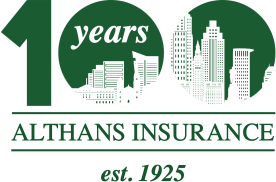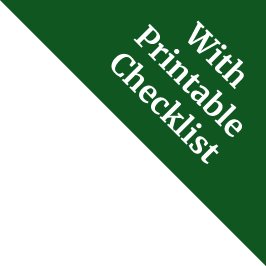As warnings go out or after a storm or natural disaster strikes, your family’s safety and wellbeing are your top concern. But in the aftermath of a major event, the upheaval and potential for downed infrastructure loom large. Medical emergencies can feel just as earth-shattering, and often require some regrouping as well. Having an emergency kit for your home and car is always a solid plan, but how can you protect important documents and legal information you might need to rebuild and recover? That’s what we’re going to tackle here, with a comprehensive list of all the documents to protect, and some ways to do it.
Key Documents to Protect
Once disaster and danger have passed, it’s vital to have key information at the ready.
Family Identification
- Birth and death records, marriage license, divorce certificate, adoption paperwork, and child custody decree(s)
- Degree(s), professional license(s), concealed carry permit, amateur radio license, voter’s registration card(s)
- Passport(s), visa(s), driver’s license(s), Social Security card(s), Permanent Resident Card(s), Military ID card(s), and naturalization or citizenship papers
- Pet ownership papers, breed/pedigree documentation, identification tags, vaccine records, and pet microchip tag number(s)
- Recent photos of each family member and pet, in case of separation
Financial and Legal Records
- Home lease or rental agreement, mortgage documentation, home equity line of credit records, property deed(s)
- Vehicle and/or boat loan/lease/purchase documents, VIN documentation, registration records, and title(s)
- Records of scheduled financial obligations, such as utility bills, credit card statements, student loan payments, alimony and/or child support payments, elder care bills, and any regular automatic payments such as memberships or subscriptions
- Financial records from all checking, savings, debit card, retirement, investment accounts, and other assets, including account/routing numbers along with pin numbers and passwords for online accounts
- Insurance policy information from all policies, including homeowners, renters, auto, life, and flood, plus any appraisals/documentation of valuables or collectibles and an up-to-date written or video inventory (e.g. photos, descriptions, brand, model, and serial number)
- Income information, including pay stubs, government benefit records, and alimony and/or child support documentation
- Tax returns and documentation of federal, state, local, and property taxes
- Legal and estate planning documents, including will, trust, and power of attorney
- Contact information for bank(s), credit union(s), and investment professional(s) along with PINs and passwords for financial websites/apps; checking, savings, and CD account numbers; stock and brokerage account information; credit card numbers and payment due dates
- Final arrangements/wishes, financial power of attorney (POA), payable upon death (POD) form, and an up-to-date will
Medical Records and Related Information
- Health/dental/vision insurance account information, Medicare, Medicaid, and VA health benefit documentation, copies of health insurance cards
- Up-to-date list of current medications and prescriptions, valid immunizations, known allergies, relevant medical equipment and devices, and most recent pharmacy information
- Disability documentation, up-to-date living will and medical power of attorney paperwork, caregiver agency contract or service agreement if applicable
- Current contact information for primary care physician(s) and other important doctors, specialists, dentists, pediatricians, veterinarians, etc.
- Final arrangements/medical crisis information, including any medical directives you’ve established (i.e. living will, durable medical POA, advance healthcare directive, or psychiatric advance directive (PAD))
Emergency Contact Information
- Employer(s) and/or supervisor(s), school(s) and/or daycare(s), church/house(s) of worship, social service provider(s), Homeowners Association, and any clubs or member-only organizations
- Trusted home repair services, including a plumber, roofer, carpenter, electrician, and HVAC professional
- Contact information, including at least a name and most recent phone number, for friends and/or relatives that live locally and out of state, including who to contact if your emergency kit is lost and found
- Current cell phone numbers for immediate and extended family members
Personally Important Items
- Mementos, photos, and keepsakes
- Personal family history and/or genealogy records
- Keys/passcodes to safety deposit box, safe, bug out location, vacation home, vehicles, storage units, etc.
- List of firearms including serial numbers
- Master password list, preferably in digital form using a secure password management service and including passwords to social media accounts; home computer(s); cell phone(s) or other mobile device(s); and home WiFi
You might wonder whether all of this information is really necessary. Well, just a quick scan of the news will find stories of folks who lost their homes or had to flee their communities. And we all know (sometimes too well) that medical emergencies can strike without a moment’s notice. The likelihood that any of these events will happen to you may not be particularly high, but planning ahead means that should something catastrophic occur, recovery won’t be quite as long or hard of a road to climb. Instead, you’ll have all the tools you’ll need to regain footing.
Where and How To Store Emergency Documents
Now that you have your documents assembled, you’ll want to find the best way to store them so that they are not just safe, but also easy to access, no matter the situation.
Here are some more ideas for safe physical storage of important documents:
- Use a metal safe, fire safe, or secure document bag
- Safety deposit box at your bank, either in hard copies or digitally, on a USB thumb drive
- Keep papers in an organized binder or accordion file that can easily be grabbed in a rush and is portable, offers versatile storage options including pockets and folders for keys and/or USB drives, is sturdy and well-made, and is secured with a zipper and/or over-the-shoulder strap
- Metal legal document storage chest or briefcase with keyed entry
- Loaded on a USB thumb drive and stored at safe, remote locations, such as with out-of-town family or friends
If you opt for physical storage, consider keeping documents near your home emergency kit, and always choose a fireproof and waterproof option that’s kept in an area that’s not prone to mold, mildew, or water damage. If you’re storing your documents in the open, be sure that sensitive information isn’t visible and that it’s not labeled in a way that would tempt prying eyes. There are several document binder kits available online to help keep you organized.
If you’d prefer to keep things safe in a digital form, here are some options:
- Digitize records and fit them all onto a hard drive or flash drive; use a master spreadsheet to keep track of documents
- Store documents in the cloud using an online storage platform
Each physical and digital storage method has its advantages and disadvantages, and you’ll want to consider those carefully and weigh your options before deciding what’s best for you and your family. For instance, while the cloud allows you access all of your information from anywhere, it is part of the internet, which means it’s also open to being hacked. So if you’re going that route, we’d suggest looking a little deeper into encryption and multiple authentication factors. You’ve got this far, so make sure that your efforts count.
Original vs Copies
While you’re organizing and getting your emergency document kit ready, you’ll want to think about whether you’re going to rely on copies or original documents. Sometimes originals could be necessary, such as in the case of deeds, birth certificates, social security cards, and other key records. But the risk of losing originals looms large, and replacement, while possible, takes time that you might not be able to afford. Storing these vital documents in a fire safe or a safe deposit box is a good backup option (except for your will), and storing them at a family member or friend’s home is another suggested move. A family lawyer’s office can also be a safe storage spot for original documents. Keeping copies on hand, either in a paper or digital format gives you quick access without having to worry about losing valuable originals.
Now that your kit is assembled you can feel secure, knowing that come what may, you and your family are as ready as you can be. So take a deep breath and claim some well-earned peace of mind. Remember, too, that whatever turn life takes, Althans is here to protect what matters most. Reach out today to discuss your insurance needs for home, auto, and life.


